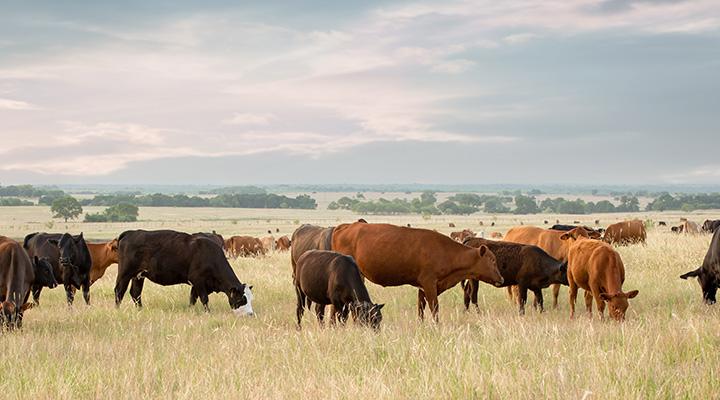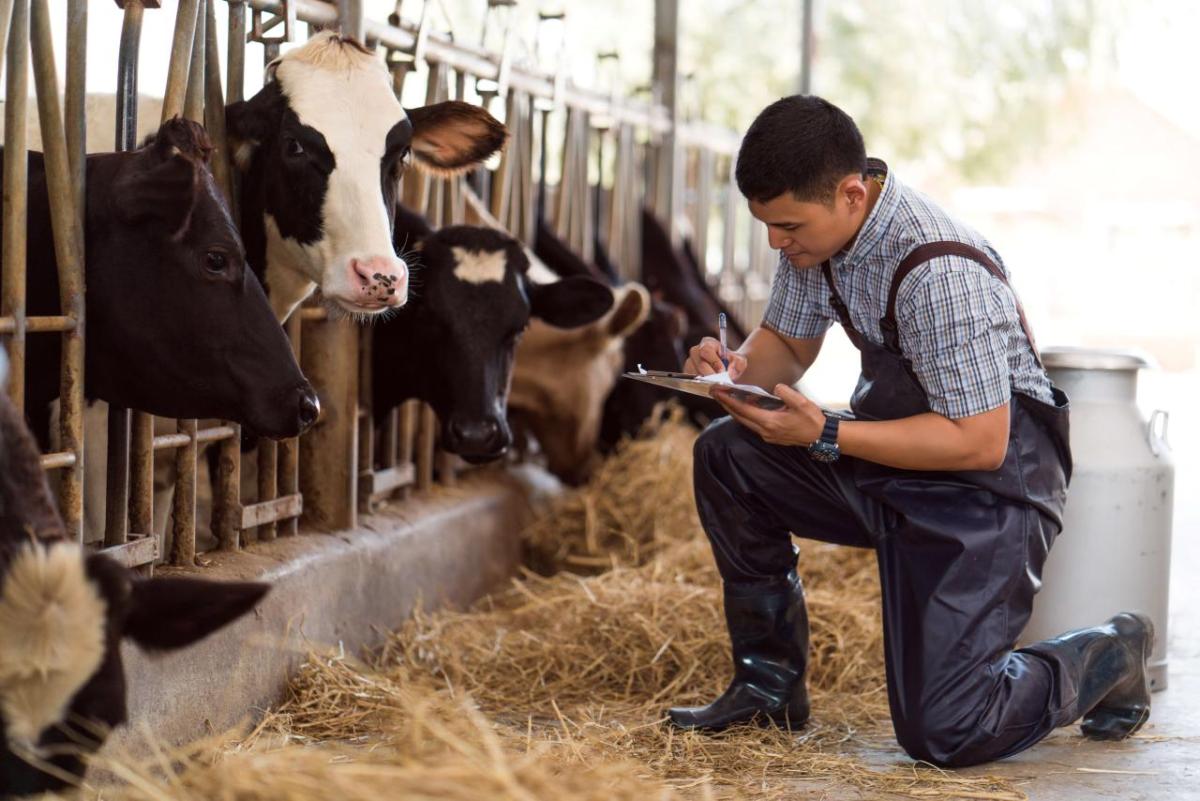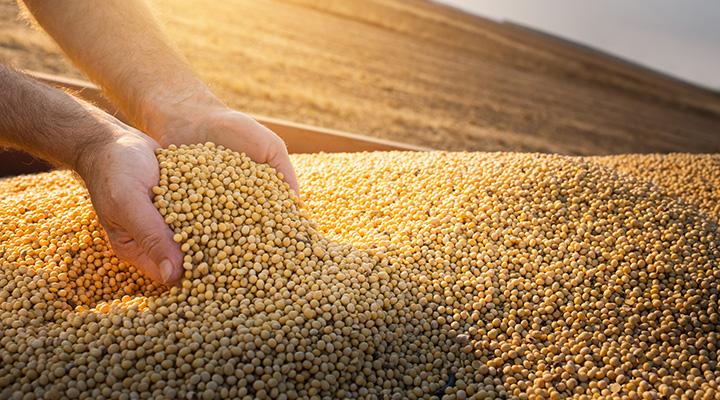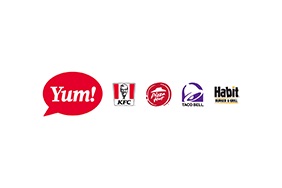How Yum! Brands Is Making Its Supply Chain More Sustainable
The KFC, Pizza Hut, Taco Bell and The Habit Burger Grill parent company is investing in partnerships with dairy, beef and poultry suppliers to reduce carbon emissions and develop more resilient agricultural practices.
Published 12-15-23
Submitted by Yum! Brands

The effects of climate change can have a major impact on the global food system. That’s why Yum! Brands aims to be part of the solution and is working with suppliers to cut greenhouse gas (GHG) emissions.
“We rely on healthy agriculture systems to support sustainable crop yields and livestock productivity,” said Yum! Chief Sustainability Officer Jon Hixson. “If temperatures rise and extreme weather events increase, then there may be less supply of items like beef, chicken and cheese worldwide. It’s all connected. Improving supply chain resilience helps mitigate these risks, benefiting our consumers, suppliers and franchisees.”
In 2021, Yum! Brands announced science-based targets (SBTs) and established a clearly-defined path to reduce its GHG emissions intensity from core proteins, which include beef, chicken and dairy, by 46% by 2030, compared to its 2019 baseline, in line with the Paris Agreement goals.
In order to reach these goals, Yum! is partnering with its protein suppliers, investing in targeted pilots, engaging with sector and industry partners from land use to animal feed, and working across the food industry to ensure transparency and alignment with how agricultural emissions are being tracked and reported.

Tapping into technology to make dairy more sustainable
United States dairy farmers have worked hard to reduce their GHG emissions, so much that the U.S. dairy industry is responsible for less than 2% of the nation’s total carbon output.
Their expertise is evident in the Dairy Farmers of America’s (DFA) partnership with Pizza Hut U.S. In 2022, Pizza Hut set a goal to source 50% of the dairy used to make its pizza cheese from farmers focused on using sustainable practices by 2025 and met the goal two years early.
Now the brand is focused on helping those dairy farmers become even more sustainable by providing them with a SCiO cup. Farmers place a scoop of cattle feed into the cup to determine levels of dry matter in the feed, delivering precise nutrition to the cows. As a result, the cows eat less feed but consume more nutrients, resulting in less methane released, causing an overall GHG emissions reduction.
“This DFA partnership provides dairy farmers with technology that makes feeding cows more efficient and reduces environmental impacts while still delivering the same great taste our customers have come to expect,” said Emily True, the global sustainability manager at Pizza Hut. “The technology is so effective that we’re applying it to markets around the world.”
Investing in sustainable agricultural practices
Native grasslands make up a critical component of the U.S. beef supply chain; they also generate many important ecosystem services, including helping with carbon storage, supporting water retention and providing habitats for fish and wildlife. But these systems are adversely affected by climate change, land use conversion, overgrazing and the spread of invasive species.
To address these environmental impacts, Taco Bell and long-time supplier Cargill are jointly committing $2 million and will leverage up to an additional $2 million in funds from the National Fish and Wildlife Foundation (NFWF) to provide grants to U.S. beef producers in the Intermountain West via the Rocky Mountain Rangelands Program. The first round of grant recipients have already been identified for their impactful restoration and regenerative ranching work.
“In partnership with Cargill, Taco Bell will help organizations working directly with ranchers to provide a better habitat for wildlife, increasing carbon sequestration and creating a more resilient ecosystem for people and for the species that depend on these rangelands for their very survival,” said Jeff Trandahl, executive director and CEO of NFWF.
Combatting biodiversity loss
Another way the protein supply chain contributes to climate change is when forests are cleared to grow crops or raise animals, like in the Amazon and other areas of South America, which then releases carbon. As soy is a key ingredient in poultry feed, KFC is committed to being part of the solution with its Western Europe market aiming to source 100% of its soy sustainably by 2030 (2025 for KFC U.K. & Ireland). Plus, the brand has already incorporated a soy sourcing policy into its Sourcing Code of Practice, conducting a soy mapping exercise, engaging with suppliers on sustainability programs and sharing progress and challenges through disclosure.
“Delivering finger lickin’ good chicken to our fans is important, as is ensuring that KFC does so responsibly. Soy raised in areas known for higher risks of deforestation is a topic we continue to focus on to mitigate our impact on climate and biodiversity,” said Aurélie Dufour, head of Responsible Sourcing & Regulatory Compliance in KFC Western Europe. “Tracking soy used across the poultry supply chain is complicated, but we are committed to preventing deforestation with the help of our suppliers and trusted NGO partners.”

Engaging suppliers about climate action
Beyond the targeted engagements, Yum! knows how important it is to engage its suppliers more broadly when it comes to climate action. That’s why the company joined the Supplier Leadership on Climate Transition (LOCT) in 2022. Suppliers that participate in the program receive education and training on the climate landscape, measurement and reporting, and abatement. The goal is that participating suppliers will make impactful changes in how they operate, ultimately benefitting the climate, but also, their bottom line.
“This is hard work and takes a real commitment,” said Ann Davidsons, director of Energy, Sustainability & Infrastructure at Guidehouse, the global consultancy firm that manages the Supplier LOCT. “Our experience is proving that, with access to hands-on education and practical tools, suppliers can make a measurable impact in a more rapid fashion.”
Looking ahead at decarbonization in food systems
Collaborating with suppliers and sharing key learnings across its global business will remain integral as Yum! continues its climate journey. This includes areas that are still in development like how to track and calculate emissions in food systems which can vary by commodity and supplier.
“Our brands remain committed to making their supply chains more sustainable whether it be by reducing emissions or investing in more sustainable agriculture practices,” said Hixson. “While there’s still a lot of work to be done, our cross-sector collaborations are helping identify new innovations and providing space to test what works before we look to scale solutions more broadly.”
For more information about Yum!’s Recipe for Good Growth, click here.

Yum! Brands
Yum! Brands
Yum! Brands, Inc., based in Louisville, Kentucky, and its subsidiaries franchise or operate a system of over 60,000 restaurants in more than 155 countries and territories under the company’s concepts – Taco Bell, KFC, Pizza Hut and Habit Burger & Grill. The Company's Taco Bell, KFC and Pizza Hut brands are global leaders of the Mexican-inspired food, chicken and pizza categories, respectively. Habit Burger & Grill is a fast casual restaurant concept specializing in made-to-order chargrilled burgers, sandwiches and more. In 2024, Yum! was named to the Dow Jones Sustainability Index North America, Newsweek’s list of America’s Most Responsible Companies, USA Today’s America’s Climate Leaders and 3BL’s list of 100 Best Corporate Citizens. In 2025, the Company was recognized among TIME magazine’s list of Best Companies for Future Leaders. In addition, Taco Bell, KFC and Pizza Hut brands were ranked in the top 25 of Entrepreneur’s Top Global Franchises Ranking for 2025, with Taco Bell securing the No. 1 spot for the fifth consecutive year.
More from Yum! Brands

